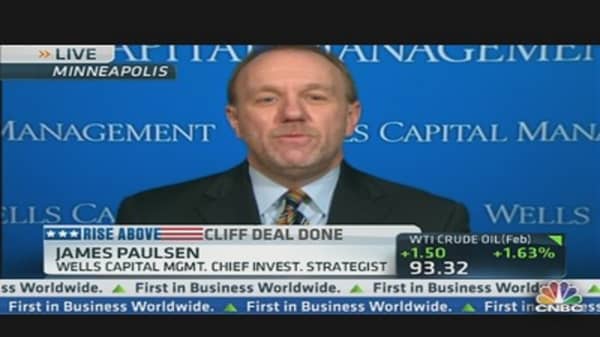U.S. benchmark 10-year Treasury yields hit their highest in over three months on Wednesday after lawmakers approved a deal that prevented a round of automatic budget cuts and tax hikes that could have tipped the world's largest economy into recession.
The Republican-controlled House of Representatives approved a bill late on Tuesday that will raise taxes on top earners, avoiding a "fiscal cliff"' of $600 billion in higher taxes and decreased spending. (Read More: US Avoids Calamity in 'Fiscal Cliff' Drama)
Relieved investors dumped safe havens, such as U.S. government debt, to pour money into higher-yielding, riskier assets, such as equities.
"The House passed the Senate's last-minute deal overnight ... sparking a substantial risk-on move that has Treasurys on the back foot,'' said John Briggs, Treasury strategist at RBS Securities in Stamford, Connecticut.
Benchmark 10-year Treasurys were trading 22/32 down in price to yield 1.839 percent, up from 1.76 percent late Monday. Yields touched 1.86 percent on Wednesday, the highest since mid-September.
Thirty-year Treasury bonds were trading 1-26/32 lower in price to yield 3.045 percent, up from 2.95 percent late Monday. Bond yields traded at 3.06 percent early in the session, at the highest also since mid-September.
Indeed, yields may rise further if data, including the non farm payrolls report for December due out on Friday, show the U.S. economy is improving.
"Jobs growth probably accelerated in December, as a few more employees finally returned to work after the disruptions caused by superstorm Sandy,'' said Paul Dales of Capital Economics.
The bearish tone in Treasurys was supported on Wednesday by data from the Institute for Supply Management showing U.S. manufacturing expanded slightly last month after an unexpected contraction in November.




